Find Help
More Items From Ergsy search
-
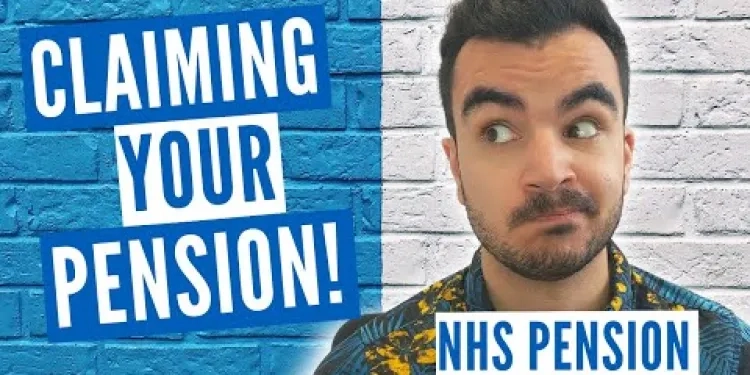
NHS Pensions | How to Claim? | Ill Health, Active & Deferred Members
Relevance: 100%
-

Can pension scheme members influence how their pension is managed?
Relevance: 51%
-

What can pension fund members do if their fund is at risk of failing?
Relevance: 49%
-
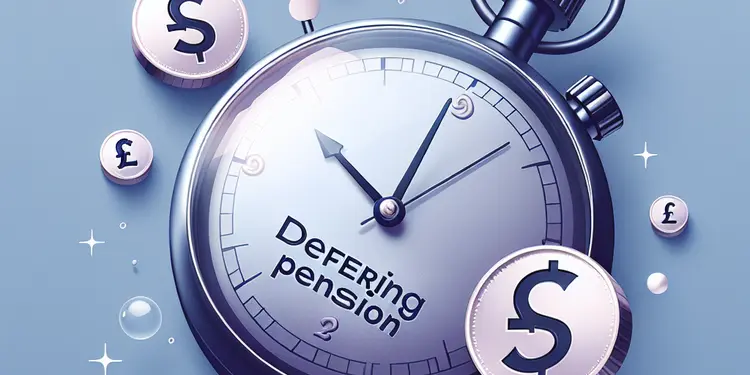
Can I defer my basic State Pension?
Relevance: 44%
-

How much extra will I get if I defer my basic State Pension?
Relevance: 40%
-
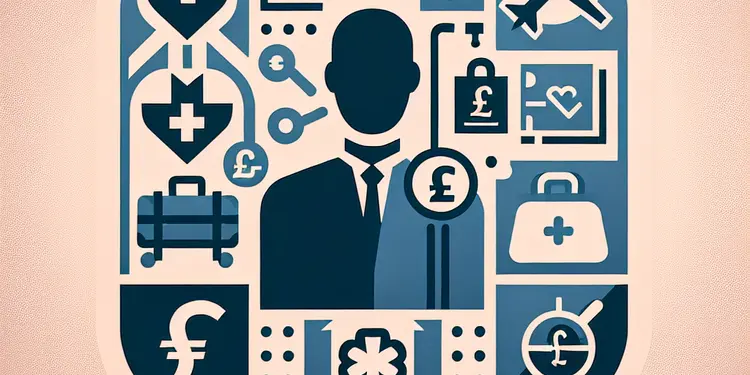
Can I include a family member during my travel for treatment?
Relevance: 39%
-

Is the Attorney General in the UK a member of the cabinet?
Relevance: 37%
-

Can family members be involved in the care process on a virtual ward?
Relevance: 36%
-
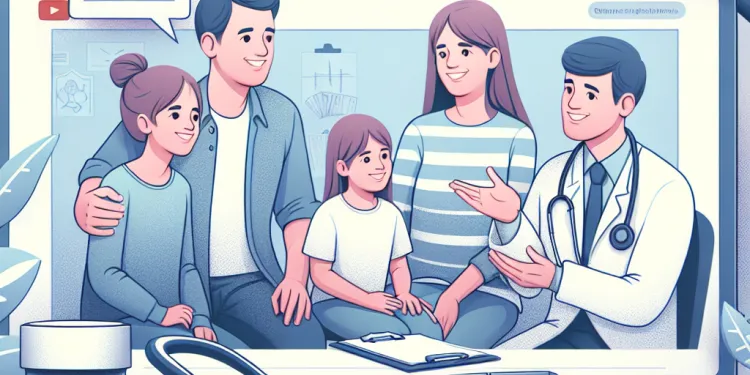
Managing Chronic Illness Within the Family
Relevance: 34%
-

Can cremation ashes be divided among family members?
Relevance: 33%
-
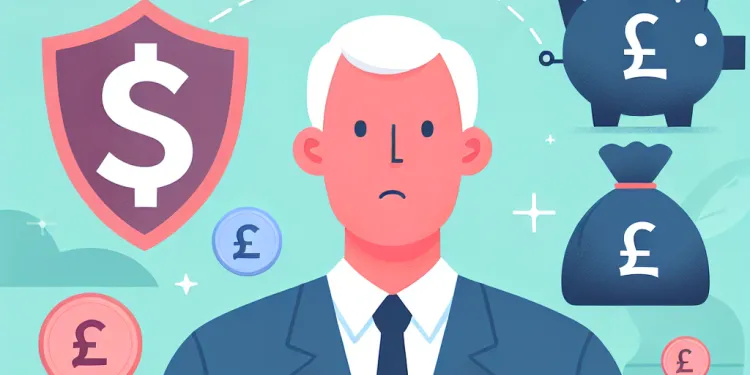
What is the Pension Protection Fund?
Relevance: 33%
-

How can families support a member with autism?
Relevance: 32%
-
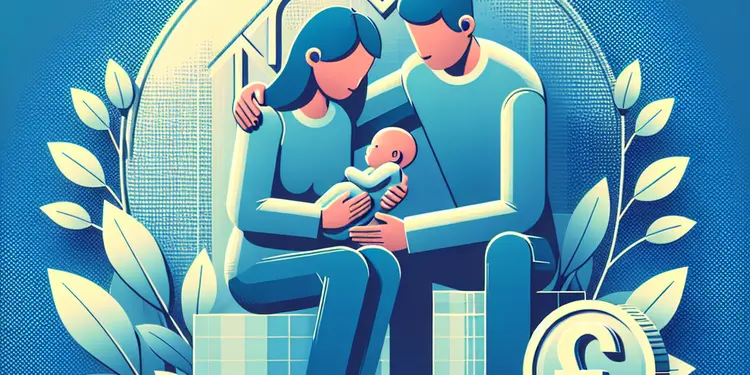
How can family members support someone with postnatal depression?
Relevance: 31%
-

What Happens When Pensions Go Bust! | Pension System Collapse UK
Relevance: 30%
-
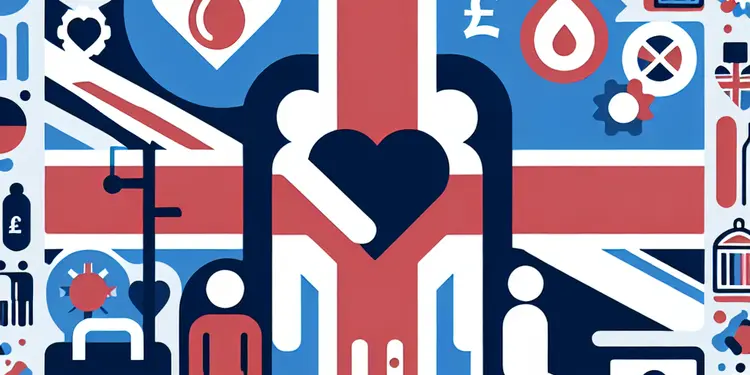
Can you donate blood specifically for a friend or family member?
Relevance: 30%
-

How can family members help assess an elderly person's driving ability?
Relevance: 29%
-

Pension rights for Firefighters in the UK
Relevance: 29%
-

Public Sector Pension Changes | McCloud Judgement | NHS Pensions etc.
Relevance: 29%
-

Will interest accrue during deferment?
Relevance: 28%
-

NHS Pensions | All you need to know
Relevance: 27%
-

How do health officials monitor H3N2 activity?
Relevance: 27%
-
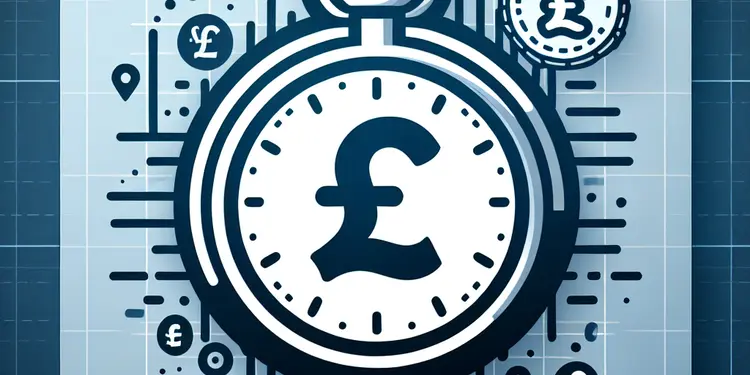
What is deferment and how can it help?
Relevance: 26%
-

Can inheritance tax be deferred?
Relevance: 26%
-

Are there credits available for the basic State Pension if I can't work?
Relevance: 26%
-

Who is eligible for compensation from the PPF?
Relevance: 25%
-

The Benefits of Family Activities
Relevance: 25%
-

Understanding and Managing Respiratory Illnesses in Families
Relevance: 25%
-

How does leaving the fire service before pension age affect my benefits?
Relevance: 25%
-
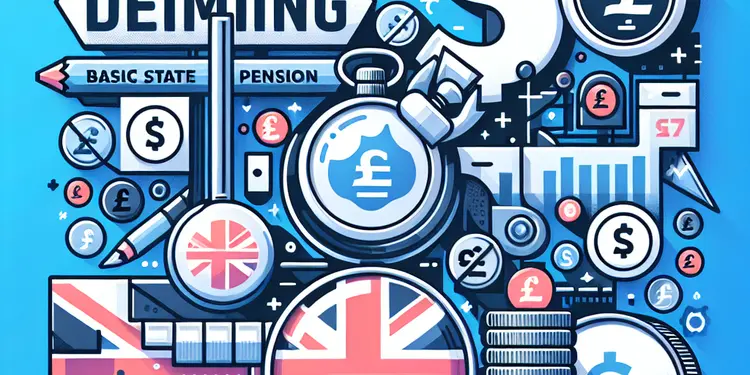
How do I claim the basic State Pension?
Relevance: 25%
-

Do firefighters have to contribute to their pension schemes?
Relevance: 25%
-

Are the pension rights different for firefighters who joined before 2006?
Relevance: 25%
-

Police Pension Explained
Relevance: 25%
-

Can CGT be deferred or paid in installments?
Relevance: 24%
-

Mental Health Support for Families: Resources and Strategies
Relevance: 24%
-

What is the normal pension age for firefighters in the UK?
Relevance: 23%
-

Is it possible to buy additional pension benefits as a firefighter?
Relevance: 23%
-

What is a defined benefit pension scheme?
Relevance: 23%
-

What options are available for flexibly accessing firefighter pension benefits?
Relevance: 23%
-
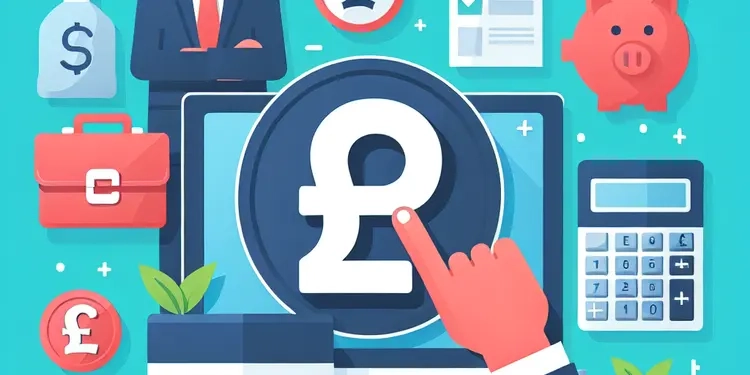
What is the basic pension in the UK?
Relevance: 23%
-

How does insolvency impact pension funds?
Relevance: 22%
NHS Pensions: How to Claim?
The NHS Pension Scheme offers vital benefits to those who've worked within the National Health Service in the UK. Understanding how to claim these benefits is essential for ensuring that you receive the financial support you're entitled to. Whether you are approaching retirement, dealing with ill health, or simply need to understand your options, this guide provides key information on how to claim your NHS pension.
Ill Health Retirement
If you are an NHS employee suffering from a medical condition that prevents you from continuing work, you may be eligible for ill-health retirement. The process involves submitting a claim, supported by medical evidence, to demonstrate that you meet the criteria for ill-health benefits. The claim must include a report from an occupational health physician. Upon approval, you will receive your pension benefits earlier than the usual retirement age, potentially enhanced based on severity and likelihood of recovery.
Active Members
Active members are those currently employed by the NHS and contributing to the pension scheme. As an active member, you can choose to retire and claim your pension once you reach the scheme's minimum pension age, though the amount will depend on your length of membership, salary, and specific scheme rules. It's important to apply for your pension around four months before your planned retirement date, using the specified application forms available through the NHS Business Services Authority.
Deferred Members
Deferred members are those who have left the NHS but keep their pension benefits in the scheme until they choose to claim them. Unlike active members, deferred members must contact the NHS Pension Scheme to initiate the claiming process when they wish to begin receiving their pension. They, too, will need to fill out an application form, and it's advisable to start the process several months before you wish to begin pension payments.
In all cases, ensuring that you have the correct documentation and information ready is essential for a smooth claiming process. This includes personal identification, employment details, and relevant medical or employment history if applicable. For all inquiries and submission of applications, members should use the official NHS Pension helpline or online services.
NHS Pensions: How to Claim?
The NHS Pension Scheme helps people who have worked for the National Health Service in the UK. It is important to know how to claim your pension benefits. This will help you get the money you deserve. If you are retiring, have health problems, or want to know your options, this guide will help you understand how to claim your NHS pension.
Ill Health Retirement
If you work for the NHS and have a health problem that means you cannot continue working, you might be able to get ill-health retirement. This means you can get your pension early. You need to make a claim to show you meet the requirements. You will need a doctor's report to support your claim. If your claim is approved, you get your pension before the normal retirement age. The amount may be more depending on how serious your illness is.
Active Members
Active members are people who work for the NHS and pay into the pension scheme right now. As an active member, you can claim your pension when you reach the minimum pension age. The amount you get depends on how long you have worked, your salary, and the scheme rules. You should apply for your pension about four months before you want to retire. You can get the forms from the NHS Business Services Authority.
Deferred Members
Deferred members are people who have left the NHS but keep their pension until they want to claim it. If you are a deferred member, you need to contact the NHS Pension Scheme to start getting your pension. You will need to fill out a form. It is a good idea to start this process a few months ahead of time.
Always make sure you have the right papers and information ready. This includes your ID, job details, and any health or job history if needed. For questions and to send in applications, call the NHS Pension helpline or use their online services.
Frequently Asked Questions
How do I claim my NHS Pension?
To claim your NHS Pension, you need to complete the AW8 application form and submit it to your employer if you are an active member, or directly to the NHS Pensions if you are a deferred member.
What is the difference between active and deferred members?
Active members are currently contributing to the NHS Pension Scheme through employment, whereas deferred members have stopped contributing but have benefits preserved in the scheme.
Can I claim my NHS Pension if I retire due to ill health?
Yes, if you retire due to ill health, you may be eligible for your NHS Pension benefits. You will need to provide medical evidence and apply for ill health retirement.
What forms do I need for ill health retirement?
You will need to complete the application form AW33E or AW38, and provide supporting medical evidence that demonstrates your inability to continue working due to ill health.
How long does it take to process my NHS Pension claim?
The processing time can vary, but it typically takes several months from the date all required documentation is received by NHS Pensions.
When can I start to receive my NHS Pension?
You can start receiving your NHS Pension from your normal pension age, or earlier if you meet the criteria for early or ill health retirement.
What is the normal pension age in the NHS Pension Scheme?
The normal pension age depends on the section of the NHS Pension Scheme you belong to, but it's usually linked to your state pension age, and could be 60, 65 or in line with the State Pension age.
Can deferred members access their pension benefits before retirement age?
Yes, deferred members may access their pension benefits before the normal pension age through early retirement, but this may result in a reduced pension amount unless eligible for ill health retirement.
What if my application for ill health retirement is denied?
If your application for ill health retirement is denied, you will be notified of the reason and have the right to appeal the decision. It’s advisable to provide further medical evidence if available.
Are there any tax implications when claiming my NHS Pension?
Yes, your NHS Pension may be subject to income tax, based on the amount and any other income you receive. It is important to understand the tax-free lump sum and annual allowance implications.
How can I increase my NHS Pension benefits?
You can increase benefits by purchasing Additional Pension, contributing to the NHS Money Purchase AVC, or working longer to accrue more benefits in the scheme.
What documentation is required to claim my NHS Pension?
You will need to provide a completed application form (AW8 for active members, AW8P for deferred members), your birth certificate, marriage or civil partnership certificate if applicable, and bank details.
How is the pension calculated for active NHS Pension Scheme members?
The pension is calculated based on your pensionable earnings and the accrual rate depending on your NHS Pension Scheme section, with considerations for service length and final salary or career average.
Will my NHS Pension affect other state benefits?
Yes, receiving your NHS Pension can potentially affect the amount you receive in means-tested state benefits, so it is important to check how it impacts your overall income.
Can I continue working for the NHS after starting to receive my pension?
Yes, you can return to or continue working in the NHS even after starting to receive your pension, but the terms of your appointment might affect your pension payments if pensionable income overlaps.
How can I get my NHS Pension?
To get your NHS Pension, you have to fill out the AW8 form. If you are still working, give the form to your boss. If you are not working anymore, send it straight to NHS Pensions.
If you need help with this, you can ask someone you trust for support. You can also try using online tools that read the information out loud.
What is the difference between active and deferred members?
A member is someone who is part of a group or club.
Active members are people who are still part of the group. They take part in activities now.
Deferred members are people who used to be active. They aren't part of the activities now, but they might join again later.
Tips for understanding:
- Use simple words to explain.
- Ask someone to explain more if you need help.
- Draw a picture to help you understand.
Active members are people who are currently working and paying into the NHS Pension Scheme.
Deferred members are people who have stopped working or paying into the scheme, but they still have their benefits saved for later.
Can I get my NHS Pension if I stop working because I am too sick?
If you stop working because you are not well, you might be able to get your NHS Pension. You will need to show a doctor's note and ask for ill health retirement.
What papers do I need to stop working because I'm sick?
You need to fill out a form called AW33E or AW38. You also have to give medical proof that shows you can't keep working because of being unwell.
How long will it take to handle my NHS Pension claim?
It may take a few weeks for your NHS Pension claim to be sorted out.
If you want to know the progress:
- Check online if they offer updates.
- Call or email their helpline for information.
Ask someone you trust to help if you find this difficult.
It can take a few months for NHS Pensions to finish your request once they get all the papers they need.
When can I start to get my NHS Pension?
You can get your NHS Pension when you reach your regular pension age. You might be able to get it sooner if you retire early or because of health problems.
How old do you have to be to get a pension from the NHS?
Here is a simple way to understand it:
- "Pension" means money you get when you stop working because you are older.
- "NHS" is the National Health Service. It helps people when they are sick.
- The "normal pension age" is the age you need to be to start getting your pension money from the NHS.
Things that can help you understand:
- Ask someone you trust to explain it to you.
- Look at pictures or watch a video about pensions.
- Write down questions you have and find answers.
Your pension age is when you can start getting your pension money. This depends on which part of the NHS Pension Scheme you are in. It is often the same age when you can get your state pension. This age might be 60, 65, or the same as the State Pension age.
If you find reading hard, tools like text-to-speech or reading apps can help you understand better. It's also good to ask questions if you need help.
Can people get their pension money before they retire?
Yes, if you have a pension but are not paying into it anymore, you can get your pension money early. This is called early retirement. But you might get less money each month. If you are sick, you might be able to get your full pension early.
What happens if they say no to my ill health retirement?
If they say no to your ill health retirement, you can ask why.
You can ask for help from someone you trust. It could be a family member or a friend.
You can try again. You may need to get more information from your doctor.
You can also talk to an advisor or a support group. They can give you advice.
If you ask to stop working because you are too sick, and your request is turned down, you will get a letter that tells you why. You can say you disagree with this decision. It’s a good idea to show more doctor’s notes if you have them.
Will I pay tax on my NHS Pension?
Yes, your NHS Pension might be taxed. This depends on how much money you get and if you have other money coming in. It's good to know about the part of the pension you don't pay tax on and how much you’re allowed to save each year without a tax charge.
How can I make my NHS Pension bigger?
If you work for the NHS, you might have a pension. A pension is money you get when you stop working. Here are some easy ways you can make your pension bigger:
- Save More Money: You can put more money into your pension each month.
- Work Longer: Sometimes, the longer you work, the more pension you get.
- Learn More: Ask someone who knows about pensions to help you. This could be a family member, friend, or a pension expert.
It might help to use a calculator to see how much more money you could get. You can find pension calculators online.
You can get more money when you retire by doing these things:
- Buy Extra Pension.
- Give money to the NHS AVC plan.
- Work for more years to get more benefits.
Ask someone you trust for help, like a family member or a friend. You can also use a calculator online to help you plan.
What papers do I need to get my NHS Pension?
You need to fill out a form. If you are still working, use form AW8. If you stopped working, use form AW8P. You also need to give your birth certificate and your marriage or civil partnership certificate, if you have one. Don’t forget to give your bank details too.
How do you work out the pension for people in the NHS Pension Scheme?
The pension is the money you get when you stop working.
Here is how it works for NHS workers:
- Each year, you earn some money for your pension. This is called 'pensionable pay'.
- When you finish working, they add up this money to see how much you get.
- They use a method to work it out. This is called a 'calculation'.
Helpful tips:
Talking to someone can help if you find this tricky. You could ask a friend or family member.
Using a calculator can make adding up the numbers easier.
Your pension is worked out by looking at how much money you made while working. It also depends on a special rate from your NHS Pension Plan. They look at how long you worked, and either your last salary or the average of your salary over your career.
Will my NHS Pension change other state benefits?
Your NHS Pension might change the money you get from other state benefits. Check with someone who can help you understand money stuff, like a benefits advisor.
If you get a letter about pensions or benefits, you can:
- Ask a family member or friend to read it with you.
- Use a highlighter to mark important words.
- Call the benefits helpline for more info.
Try using easy-to-read websites online. They can help.
Yes, getting your NHS Pension might change how much money you get from state benefits that are based on how much money you have. It's a good idea to find out how it changes your total money.
You can ask for help to understand this better. You can talk to someone who knows about money, or you can use online tools to check.
Can I still work for the NHS after I start getting my pension?
Yes, you can keep working at the NHS even if you start getting your pension money.
Here are some tips to help:
- Ask questions if you don’t understand something.
- Use a calendar to remember important dates.
- Talk to someone who works at NHS if you need help.
You can still work in the NHS after you start getting your pension. But, if your new job pays money that counts towards your pension, it might change how much pension you get.
Useful Links
This website offers general information and is not a substitute for professional advice.
Always seek guidance from qualified professionals.
If you have any medical concerns or need urgent help, contact a healthcare professional or emergency services immediately.
Some of this content was generated with AI assistance. We’ve done our best to keep it accurate, helpful, and human-friendly.
- Ergsy carfully checks the information in the videos we provide here.
- Videos shown by Youtube after a video has completed, have NOT been reviewed by ERGSY.
- To view, click the arrow in centre of video.
- Most of the videos you find here will have subtitles and/or closed captions available.
- You may need to turn these on, and choose your preferred language.
- Go to the video you'd like to watch.
- If closed captions (CC) are available, settings will be visible on the bottom right of the video player.
- To turn on Captions, click settings .
- To turn off Captions, click settings again.
More Items From Ergsy search
-

NHS Pensions | How to Claim? | Ill Health, Active & Deferred Members
Relevance: 100%
-

Can pension scheme members influence how their pension is managed?
Relevance: 51%
-

What can pension fund members do if their fund is at risk of failing?
Relevance: 49%
-

Can I defer my basic State Pension?
Relevance: 44%
-

How much extra will I get if I defer my basic State Pension?
Relevance: 40%
-

Can I include a family member during my travel for treatment?
Relevance: 39%
-

Is the Attorney General in the UK a member of the cabinet?
Relevance: 37%
-

Can family members be involved in the care process on a virtual ward?
Relevance: 36%
-

Managing Chronic Illness Within the Family
Relevance: 34%
-

Can cremation ashes be divided among family members?
Relevance: 33%
-

What is the Pension Protection Fund?
Relevance: 33%
-

How can families support a member with autism?
Relevance: 32%
-

How can family members support someone with postnatal depression?
Relevance: 31%
-

What Happens When Pensions Go Bust! | Pension System Collapse UK
Relevance: 30%
-

Can you donate blood specifically for a friend or family member?
Relevance: 30%
-

How can family members help assess an elderly person's driving ability?
Relevance: 29%
-

Pension rights for Firefighters in the UK
Relevance: 29%
-

Public Sector Pension Changes | McCloud Judgement | NHS Pensions etc.
Relevance: 29%
-

Will interest accrue during deferment?
Relevance: 28%
-

NHS Pensions | All you need to know
Relevance: 27%
-

How do health officials monitor H3N2 activity?
Relevance: 27%
-

What is deferment and how can it help?
Relevance: 26%
-

Can inheritance tax be deferred?
Relevance: 26%
-

Are there credits available for the basic State Pension if I can't work?
Relevance: 26%
-

Who is eligible for compensation from the PPF?
Relevance: 25%
-

The Benefits of Family Activities
Relevance: 25%
-

Understanding and Managing Respiratory Illnesses in Families
Relevance: 25%
-

How does leaving the fire service before pension age affect my benefits?
Relevance: 25%
-

How do I claim the basic State Pension?
Relevance: 25%
-

Do firefighters have to contribute to their pension schemes?
Relevance: 25%
-

Are the pension rights different for firefighters who joined before 2006?
Relevance: 25%
-

Police Pension Explained
Relevance: 25%
-

Can CGT be deferred or paid in installments?
Relevance: 24%
-

Mental Health Support for Families: Resources and Strategies
Relevance: 24%
-

What is the normal pension age for firefighters in the UK?
Relevance: 23%
-

Is it possible to buy additional pension benefits as a firefighter?
Relevance: 23%
-

What is a defined benefit pension scheme?
Relevance: 23%
-

What options are available for flexibly accessing firefighter pension benefits?
Relevance: 23%
-

What is the basic pension in the UK?
Relevance: 23%
-

How does insolvency impact pension funds?
Relevance: 22%


